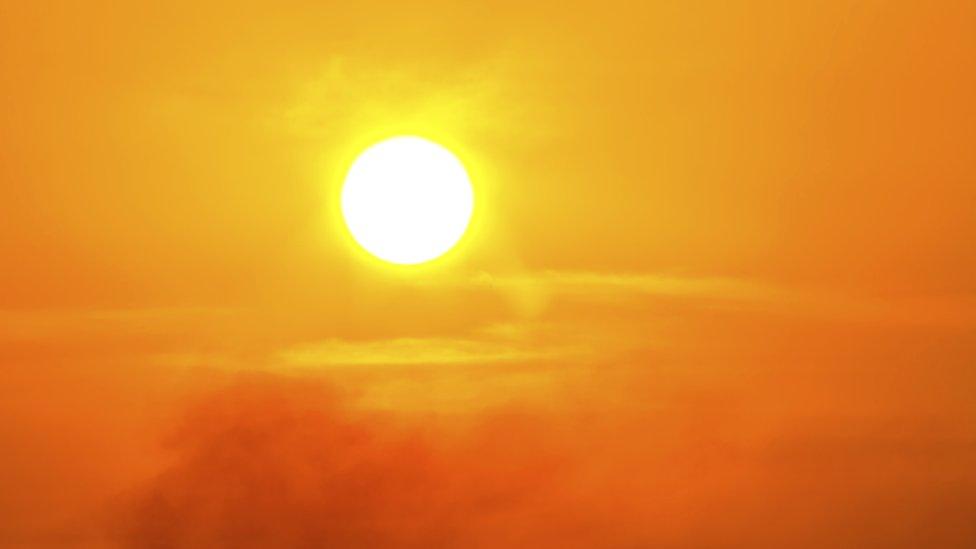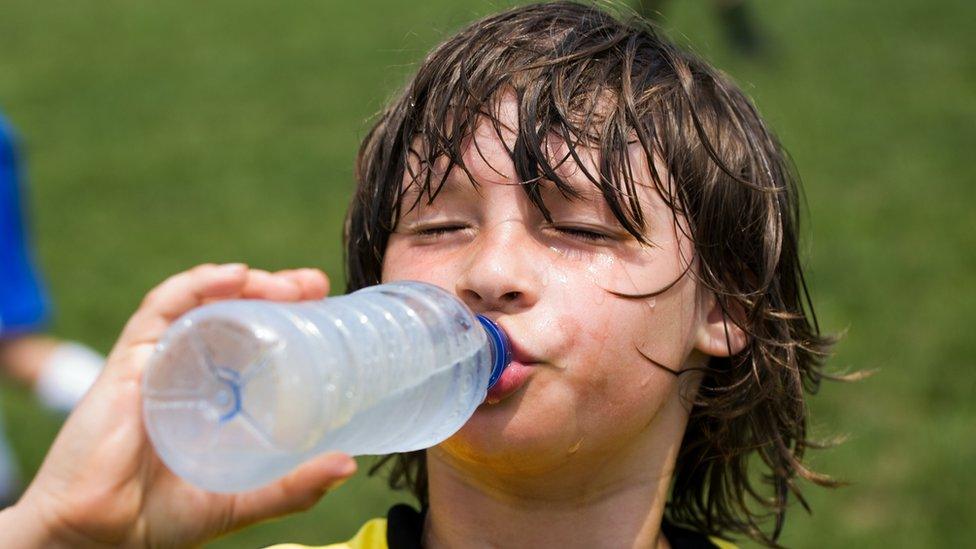Heatwave: RNLI 'concerned' ahead of soaring NI temperatures
- Published
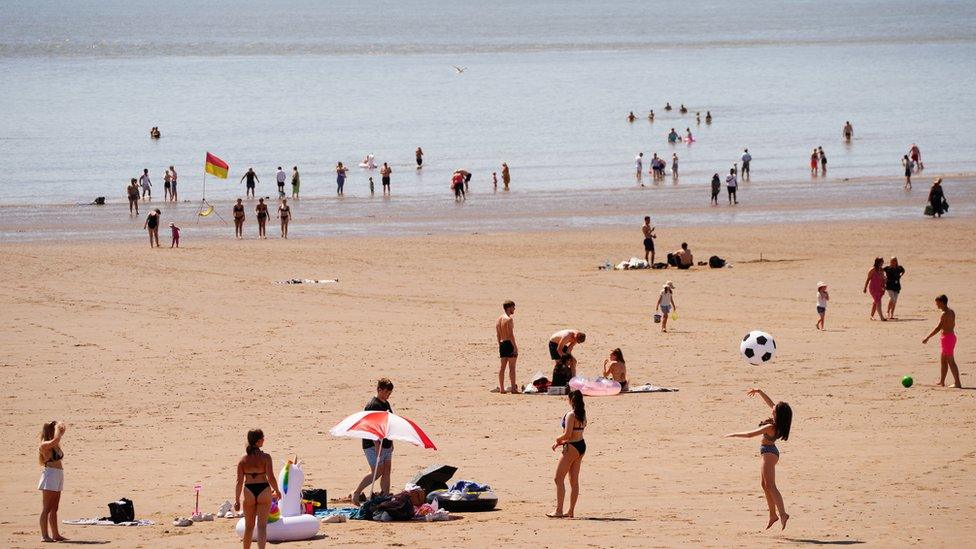
The RNLI has said it is "genuinely very concerned for the safety of the public" as temperatures in Northern Ireland are set to rise over the weekend.
Temperatures are expected to soar well above average with highs close to 30C (86F) on Monday.
Met Éireann has also issued a yellow warning for high temperatures in the Republic of Ireland.
The RNLI warned visitors to the seaside to take "extreme care".
"The message is really simple this weekend is to respect the water if you do visit the coastline," the charity's head of water safety, Gareth Morrison, said.
"The number one piece of advice if you are heading to the coast this weekend is to visit a lifeguarded beach.
"If you're bringing children or yourself to the water, the safest place you can possibly do that this weekend and into next week is at a lifeguarded beach, and I cannot emphasise enough that one simple action could very simply save your life."
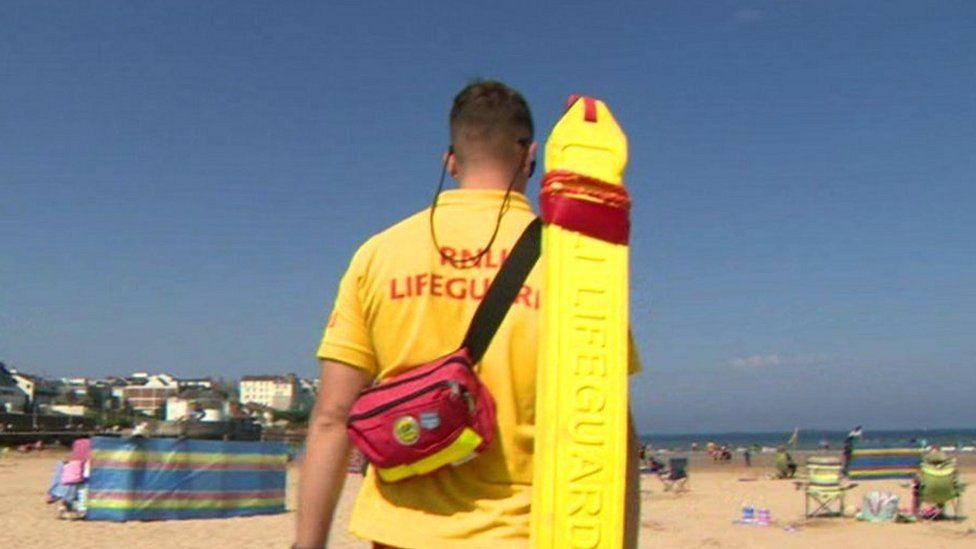
The RNLI warned beach-goers to take "extreme care" in the water
Met Éireann's yellow weather warning has been issued over "exceptionally" high temperatures, with some areas expected to reach 32C (89.6F) on Monday.
Daytime temperatures from Sunday are set to be between 25C (77F) and 30C (86F), with uncomfortably warm nights.
The warning is in place from 06:00 BST on Sunday until Tuesday at 21:00 BST.
The hotter than normal conditions are due to high pressure and hot air flowing over the UK and Ireland from mainland Europe.
There is currently no weather warning in place for Northern Ireland.
But the Public Health Agency (PHA) has issued a warning for people in Northern Ireland to take steps to protect themselves and look out for older and more vulnerable people.
The agency has written to care home providers with advice and guidance for helping residents in hotter weather.
The PHA's deputy director of public health, Dr Brid Farrell said: "It is important to look after older people and those more susceptible to potential health issues in warmer weather.
"If you have a friend or relative who is less mobile or might need a little help, make sure to check in on them.
"Help them stay hydrated with regular cold drinks, avoiding alcohol. Help them keep their home cool by shutting curtains if the sun is coming through and opening the windows in the evening or at night when it's cooler.
"Encourage them to wear light, loose-fitting clothing so they're not too hot and if you or anyone you know begins to feel sick or dizzy, keep out of the sun and seek medical advice."

Monday could bring record highs
Analysis by Barra Best, BBC News NI Weather

The severe heat conditions coming to the island of Ireland are not that common, although this will be the second year in a row where new heat records could be set.
In July 2021 temperatures climbed above 30.8C (87.4F) for the first time since July 1983, peaking at 31.3C (88.3F) in Castlederg, County Tyrone - a new record for Northern Ireland.
It is possible that Monday's temperatures could challenge that record with highs around 30C likely for some inland areas.
Although many of us travel on holiday to countries where temperatures in the 30s (or higher) are common, they are better equipped do deal with the heat.
Air conditioners in homes for example are more widespread - something which is very rare here to help cool down in the heat.
This July's heatwave won't be as prolonged though at the one in July last year with temperatures due to drop into the teens by Wednesday.

Ahead of the weekend, NI Water also warned that the rising temperatures will bring more demand for water.
It asked people in Northern Ireland to help save water by avoiding filling paddling pools, using sprinklers and taking shorter showers.
Earlier , the Met Office issued a red extreme heat warning for the first time for parts of England, including London, Manchester and York next week.
The warning means there could be a danger to life or potential serious illness from the heat.
A national emergency has now been declared by Downing Street, with officials meeting to discuss the response.
Related topics
- Published16 July 2022
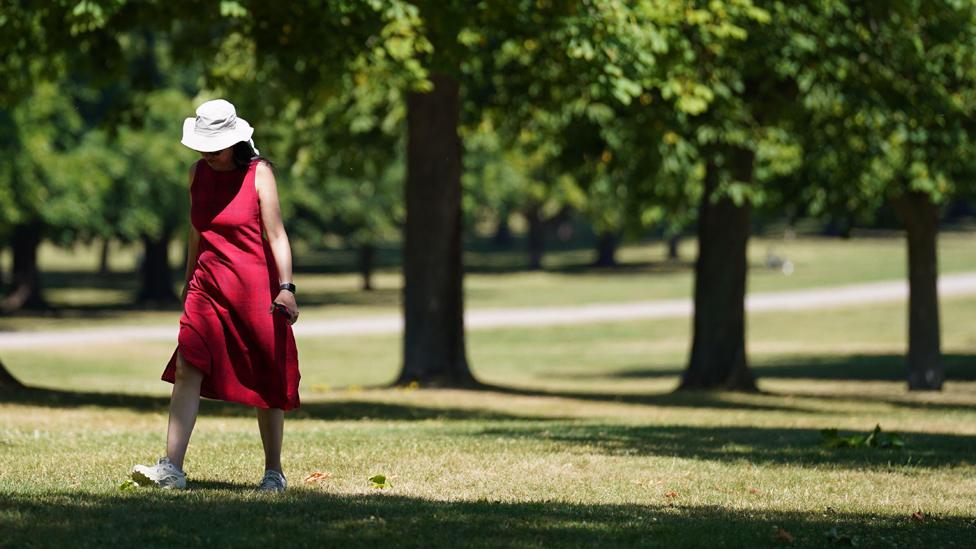
- Published13 July 2022
